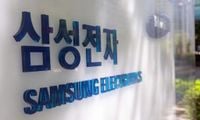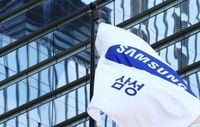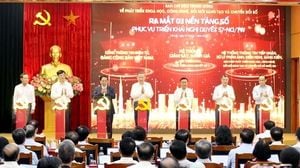Samsung Electronics’ stock price surged past the 60,000 won mark on June 9, marking a significant milestone not seen since late March. As of mid-morning trading, the tech giant’s shares climbed to 60,400 won, a 2.20% increase from the previous day, continuing a robust upward trend that has spanned seven consecutive trading sessions. This rally reflects a broader optimism in the semiconductor sector, buoyed by positive global economic signals and fresh domestic policy expectations.
The resurgence of Samsung’s stock price to over 60,000 won during trading hours is notable, as it had dipped below this threshold since March 28, 2025. Earlier that day, Samsung began trading at 60,400 won, up 700 won from the prior close, before experiencing some volatility and briefly trading between 59,600 and 59,800 won. Despite this slight fluctuation, the overall momentum remains firmly upward, with the company’s shares having risen more than 11% since May 28.
SK Hynix, Samsung’s key competitor in the semiconductor industry, also enjoyed a strong day, with its stock price surpassing 230,000 won and trading at 232,500 won as of 11:20 AM, an increase of 2.56%. This marks the fourth consecutive day of gains for SK Hynix, which had already surged nearly 10% in the first week of June. Both companies are riding the wave of renewed investor confidence in semiconductors, a sector often seen as a bellwether for technological innovation and economic health.
The catalyst behind this bullish sentiment can be traced to several converging factors. Most prominently, the U.S. non-farm payrolls report for May, released on June 6, exceeded market expectations, easing fears of an imminent recession. This data point sent ripples through global markets, lifting U.S. technology stocks such as Nvidia, Arm Holdings, and Qualcomm, which posted gains of 1.24%, 2.75%, and 1.14%, respectively. The Philadelphia Semiconductor Index, a key benchmark for the industry, rose by 0.5% in response.
Further bolstering investor enthusiasm is the anticipation surrounding the second high-level trade negotiations between the United States and China, scheduled to take place in London on June 9. Following a recent phone conversation between former U.S. President Donald Trump and Chinese President Xi Jinping, hopes for a thaw in trade tensions have grown. These discussions are crucial for global supply chains and particularly impactful for South Korea’s semiconductor exports, given the country’s pivotal role in the industry.
Domestically, the election of President Lee Jae-myung on June 3 has infused the market with fresh optimism. Lee’s administration has prioritized the semiconductor sector as a cornerstone of its economic policy, pledging robust support and reforms. Notably, the government is expected to reintroduce amendments to commercial law aimed at strengthening shareholder rights, a move welcomed by investors seeking greater corporate governance transparency and fairness.
According to Seo Seung-yeon, a researcher at DB Securities, Samsung Electronics is trading at a "valuation level with nothing to lose," with a 12-month forward price-to-book ratio (PBR) of 0.90 and a confirmed PBR of 0.95. This suggests the stock remains attractively priced relative to its assets and future earnings potential, providing a compelling entry point for investors.
Foreign investors have played a significant role in this rally, net-buying Samsung shares worth approximately 453.1 billion won in June alone. Their increased participation signals confidence not only in the company’s fundamentals but also in the structural changes anticipated under the new administration. Bloomberg reported on June 8 that global funds are betting on President Lee’s reforms, flocking to the Korean stock market with expectations that the government will pursue shareholder-friendly policies vigorously.
Central to Lee’s reform agenda is expanding the fiduciary duties of corporate directors to include shareholders, not just the company. This legal shift aims to empower minority shareholders and foster a more accountable corporate culture. This policy direction dovetails with the ongoing "Corporate Value-up Program," initiated a year ago, which has already seen tangible results: KOSPI-listed companies increased total dividend payouts by 12% in 2024 to 44 trillion won, while share buyback volumes more than doubled to 18.7 trillion won.
Prusa Iamthong, Vice President of Aberdeen Investment, remarked, "We are starting to see early signs of change. The joint efforts of the government and companies will greatly help build trust in the Korean capital market and foster a stock market culture that pays more attention to shareholder value." Such endorsements from global asset managers underscore the growing international interest in South Korea’s equity markets.
The impact of these developments is reflected in broader market indices as well. Since President Lee’s election, the KOSPI index has risen by over 164 points, or 6.08%, reaching 2,863.19 points on the morning of June 9. This surge highlights the market’s positive reception to the new government’s policies and the improving global economic backdrop.
Looking back, Samsung Electronics’ stock price had fallen into the 50,000 won range in October 2024, hitting a low of 49,900 won in mid-November before staging a gradual recovery. The brief resurgence above 60,000 won in late March 2025 was short-lived, with prices retreating again before the current rally. The recent sustained gains, therefore, represent a meaningful turnaround, suggesting renewed investor confidence in the company’s growth prospects.
In sum, the combination of stronger-than-expected U.S. employment data, easing trade tensions, supportive domestic policies, and increased foreign investment has created a fertile environment for South Korea’s semiconductor giants. Samsung Electronics and SK Hynix stand at the forefront of this resurgence, their stock performances embodying both the promise of technological innovation and the resilience of the Korean economy.


![[특징주] 삼성전자, 두달 만에 '6만전자' 터치... 7거래일 연속 상승 - 글로벌이코노믹](https://thumbor.evrimagaci.org/U5QqFIQ7FW2lw91WKfGprVdYW30=/200x0/tpg%2Fsources%2F3a62e38c-69f4-451b-a2b7-99bf5954a3ef.jpeg)



